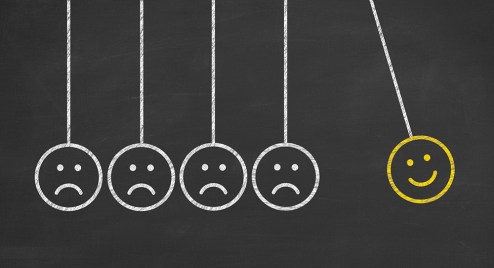5 things you didn’t know about depression
Depression is among the most common of mental health problems, estimated to affect one in ten adults at some point in their life

Sponsored article
However, emerging evidence suggests that we may not understand depression as well as we might have thought. Here are five findings from recent studies that cast new light.
1. You might have depression and not know it, particularly if you are male and/or BAME.
Olfson and colleagues recently published the results of a USA survey investigating the diagnosis and treatment of medical conditions. More than 45,000 American nationals responded to the survey, which asked them to describe symptoms of depression and treatment that they were receiving.
Amazingly, the researchers found that only 29% of those meeting the criteria for depression were receiving any treatment. This finding was even more pronounced among black, Asian and minority ethnic (BAME) groups, men, and those of lower educational attainment.
This may be due to problems recognizing depression among these groups, as the characteristic symptoms of the condition can vary. For example, many have argued that common diagnostic manuals used by doctors and psychiatrists are biased towards the symptoms seen in women. Others have highlighted difficulties recognising symptoms of depression when the doctor does not share the patient’s culture and/or ethnicity.
2. If you have been diagnosed with depression, you may be receiving inappropriate treatment.
Olfson and colleagues’ study also looked at the individuals who reported that they were currently receiving treatment for depression, to see if this corresponded with the type of symptoms they were experiencing, and their severity.
Astonishingly, it was found that less than a third of this group described symptoms that would merit a diagnosis of depression. Of course, this may simply indicate that the treatment they were receiving was working. However, there has been a growing concern that antidepressants are being widely over-prescribed, particularly for those with mild symptomology.
Drugs have been shown to have little effect on treating this group, and psychological therapies are recommended instead. The authors argue that their findings could provide evidence in support of this trend of unnecessary drug prescription. Whilst this was an American survey, arguably the trend holds in the UK, despite the difference in prescribing protocol. If you are taking medication and you are not sure that you need it, speak to your prescribing professional before making changes to your drug regime. If in doubt, be prepared to seek a second opinion.
3. Drugs are effective, but unpredictable.
Antidepressants fall into six broad categories: SSRIs, SNRIs, NARIs, TCAs, MAOIs, and NaSSAs. Each category of drugs works on the brain in a slightly different way; however, within each class of drugs, the biological action is the same, there are just subtle differences in the way the drug is composed.
For instance, all SSRIs slow serotonin reuptake by blocking the part of the pre-synaptic neuron that recycles serotonin from the synaptic gap. This means that serotonin, the neurotransmitter broadly responsible for regulating mood, is able to bind with the post-synaptic neuron receptors more often, and thus send more messages than it would otherwise.
There are many types of antidepressant, and at a population level they all work equally effectively: that is to say, there is no evidence that one is more effective than the other. However, some individuals will take one type and have no response, whilst another type will work perfectly. For another person, the opposite reaction may occur. In short, the message is this: do not lose hope if the first or second drug you try has no effect. The third one may be the perfect fit for you.
4. Depression is linked to the hormonal contraception.
Last year saw headlines reporting an association between the use of the oral contraceptive pill and the likelihood of developing depression. Whilst this has been hotly debated, a recent study reported by Skovlund and colleagues provides compelling evidence that it could be true.
5. Expectations effect outcomes
Recent evidence from Rutherford and colleagues indicates that our expectations have a large effect on how effective medical treatment is. In their study, participants with depression were assigned to different treatment groups.
In the first group, participants were given an antidepressant drug, and were told that this was what they were taking. In the second group, participants were told they would either receive the drug or a sugar pill placebo. Some of this group received the drug, and some received the placebo; none were told what it was that they were actually taking. After eight weeks of treatment, the first group showed the fastest and most significant improvement in symptoms, even compared with those in the second group who had received exactly the same treatment. It seems that our expectations have an important effect on treatment outcomes. For those wondering if this result applies to psychological therapies, the answer is a resounding “yes”. The take home message: if you believe you are receiving helpful treatment, you are more likely to get better, quicker.
Using a national register, the researchers followed more than one million Danish women over a number of years to see if those using hormonal contraceptives such as the pill were more likely to go on to develop depression. The results were clear: women who took the pill, particularly during their teenage years, were significantly more likely to develop later depression. As progestin is the active ingredient in most forms of the pill, this finding fits with our current understanding of the role of progesterone in the development of depression, and helps to explain why depression affects approximately twice as many women as it does men.
If you are suffering from depression and would like help deciding which therapy you are best suited to, call our knowledgeable triage team on 0203 326 9160. Clinical Partners is the UK’s largest private mental health partnership, helping children, adults, families and organisations nationwide.
Main image: Getty/iStock












